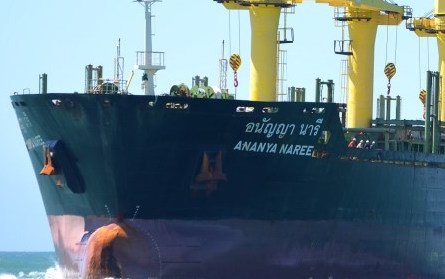Girls on film, ships on beaches

Nick Arthur from communications firm BLUE on the importance of getting your message correctly out in the open.
Remember the video for Duran Duran’s Girls on Film? It starts with the rapid whirring of a Nikon camera and goes on to portray the grim conditions of female models’ working lives for six brutal minutes.
Not quite what you recall? Lead singer Simon Le Bon has frequently said that he wanted the video to be seen as a critique of the exploitation women suffer in advertising. However, as history has shown, his ambition would prove sorely misunderstood.
Banned by the BBC and heavily edited when it was eventually shown on MTV, the video created an enormous amount of press coverage. But the song’s message about the bleak reality for many women was totally eclipsed by the video’s explicit content and the band’s libidinous lifestyle.
It’s an evergreen lesson: what you say and do frames how you’re understood. So if your strategy could be misinterpreted, it’s always better to be out in front of the issue leading the conversation away from any ambiguity.
Consider the recent tribulations of Precious Shipping. It was announced in late January that Norway’s Government Pension Fund Global (GPFG), the world’s largest sovereign wealth fund, had decided to pull its investment in the Thailand-based dry bulk shipowner.
In the recommendation letter from the fund’s council on ethics to exclude Precious Shipping it noted that it had written to the company asking whether it had disposed of ships by means of beaching in India, Pakistan, or Bangladesh in the past three years. According to the council, Precious didn’t respond to its inquiries, and in doing so failed to produce any evidence that could have cleared the matter up, or provided mitigating context for its ship disposal policy. An assertion that Khalid Hashim, the company’s chief executive subsequently confirmed: “Obviously there has been some misunderstanding and miscommunication, or should I say a lack of communication on our part…”
This communication failure was a totally unforced error. A mistake that regardless of your views on beaching is now going to cost it a chance to keep the GPFG as an investor, and has tarnished its reputation in shipping and the global capital markets.
Hashim subsequently expressed his contrition, and told TradeWinds that he’d “never wilfully” act in a way that would warrant a boycott. Unfortunately by that point he’d already beached his company, and a battalion of journalists had met Precious at the shore and picked it apart. Silence doesn’t stop people judging your business. It just means that they’ll reach their conclusions without input from the people who know it best.
The decreasing tolerance for opacity was also raised by Martin Lunder, Nordea’s managing director of shipping, offshore and oil services at February’s Hellenic/Norwegian-American Chambers’ Shipping Conference. He emphasised that loan decisions are no longer limited to traditional factors, and a much wider scope of performance is now assessed.
“If we look at how to select customers, we look at the good old concepts like owner, management, and reputation. But then we also have things we probably didn’t focus that much on before. That’s good corporate governance and transparency. These are very important things for us,” he said.
At the same event later that day, Amit Mehrotra, Deutsche Bank’s lead analyst for US transporation and shipping, linked transparency with increased stock market value, and an improved ability to access capital markets at commercially reasonable levels. Asked for examples, he pointed specifically at companies like Eagle Bulk, Euronav, and Ardmore.
Intangible assets were a small component of business valuation in past decades. Today they represent a large and growing share of corporate equity, and are all too frequently impaired through mismanagement. So when you’re operating in uncertain depths, it’s wise to use a skilled pilot. What you know and what people understand about your business are rarely identical. The gap between them is the value your business has forfeited.
